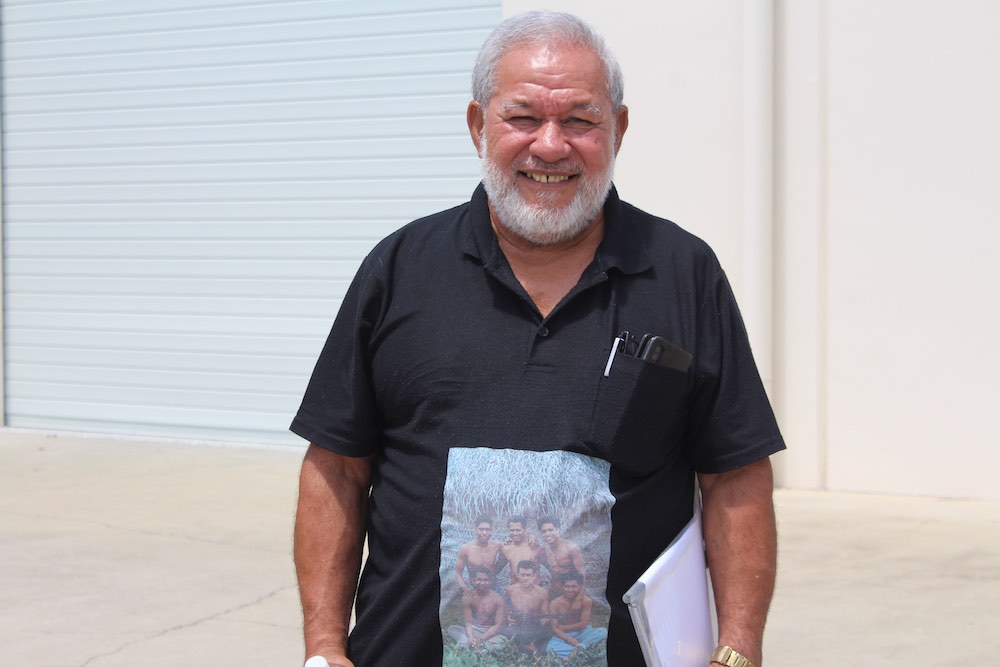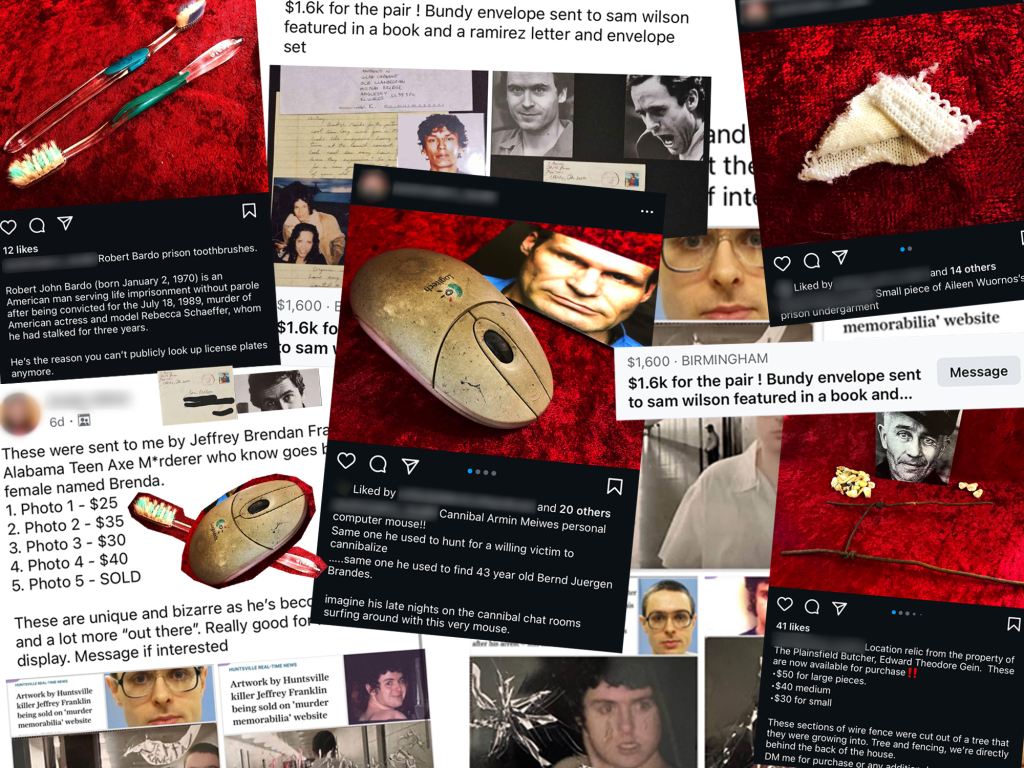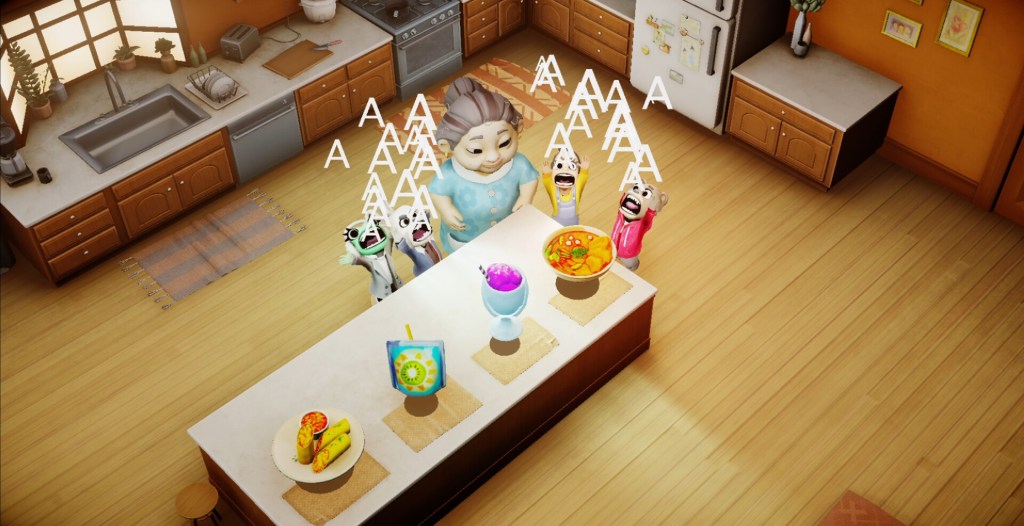In 1966, a group of six teenagers were discovered living on the Tongan island of Ata. The man who found them, an Australian adventurer by the name of Peter Warner, was shocked to learn that they’d gone missing 15 months earlier.
As they explained, they’d taken a fishing boat out from the harbour at Nuku’alofa, 160 kilometres to the south, for a bit of ill-conceived adventure. After the boat was damaged in a storm, they’d drifted without water or food for eight days before finally washing up on the shores of Ata. There they’d built a hut and a fire, and survived on a diet of fish, banana, and papaya.
Videos by VICE
This story was big news at the time, and Sydney-based photographer John Carnemolla was dispatched to the island alongside the boys to capture how they’d been living. The teenagers’ story made international headlines, but was subsequently forgotten until May last year, when it was finally resurfaced by author Rutger Bregman.
Until now, none of the boys had given a complete podcast interview of their ordeal. Here, 74-year-old Sione Filipe Totau, better known as Mano, describes his experience as a 19-year-old on the island of Ata. This article is a small extract from that interview, which appears on our latest episode of Extremes: a VICE podcast exclusive to Spotify. You can listen to the full story here.

I grew up in the little island of Ha’afeva, in Tonga. It’s a small place—about two kilometres by one kilometre—so when I started to learn geography and history, I looked at Fiji, New Zealand, and Australia, and they were all far, far bigger. I was always thinking to myself: “How can I get out from this environment?” I wanted to see the wide world.
One day, one of my friends in school told me: “We’ll go down to Fiji, you want to come?” He was talking about stealing a boat. And I said, “Oh OK, I’ll join you!” After school that day, we walked down along the beach and we looked at the boats. There was this man parking his boat in the same area everyday, always at about six or seven in the evening. So when he went home, we took the boat and sailed out.
There were six of us on the boat, aged between 15 and 19. One of the boys, his father had the same boat, so he was an experienced sailor. We put the sail up, and got out from the harbour. There was a good wind blowing.
By the time we couldn’t see the lights from Nukuʻalofa it was the middle of the night, and the wind started blowing stronger and the waves got higher. A storm came in, and we didn’t have the sense to pull down the sail so it got torn off in the wind.

The next day, it was slightly raining, and we were drifting in the middle of the ocean without a sail. We collected rainwater in some tins that we found onboard but didn’t have any food. Some of the boys started to cry, but there was nothing that we could do. We tried to keep our hopes up, but I was worried we might die.
We drifted at sea for eight days, and on the eighth day we marked the island of Ata. It would have been about 9 o’clock in the morning and the island was still far away—but slowly, throughout the day, the wind brought us closer and closer.
We didn’t get there until maybe 11 o’clock in the night. It’s a volcano island, fairly high, and we got there in the dark. We said a prayer, and then I said to the boys: “Don’t get out of the boat until I find out what’s there”.

I jumped off the boat and swam through the waves. When I got to the shore, I saw the whole island was twisting around. But it wasn’t the island; it was me. Everything was spinning after eight days without food or water. Finally, after catching my breath, I called out to the boys, “Hey, hey, I’m here!”
They made their way ashore, all alive. Then we came together to say a prayer, holding each other, crying.
To hear a more detailed version of the story in Mano’s own voice, just click the play button below:
We fell asleep, and we did not wake up the next morning until the sun came up. The first thing was to find a way up to the top of the island. So we climbed up to the top and as I climbed I stepped on a piece of wood, which was soaked wet. I picked it up and broke it apart, bit by bit, and squeezed it in my hand then licked it with my mouth. It was the first drink I’d had in eight days.
When we got to the top, we looked down at the cliffs around us. We felt so alive. We’d stepped on dry land, and that gave us far more hope than when we were drifting out at sea.
We tried to make a fire, but we were still so weak. But we kept trying everyday, and we kept going down to the sea, hunting for shellfish. We found some papaya and coconuts, and finally we got strong enough to rub some pieces of wood together, faster and faster, stronger and hotter, until they started burning and we made a fire. It took us three months to make a fire, and it was the first hot meal that we had.

The next step was to build a little house. I was the one who knew how to weave coconut fronds, and that’s what we walled the house with. It took me two weeks to weave all those palms together, and then we divided the inside of the house. There was a fireplace in the middle, and then we cut down banana leaves to fill up each bed. Then we started organising everything in a roster: how to keep the fire, how to say our prayers, along with taking care of the banana palms. We all worked together as though we’d live on the island for a long time.
I never really loved the island. I always wanted to go back home to see my family. This was why, after a month, we started to build a raft. We dropped down some big trees, then used a fire to cut up the limbs. We built the raft and tried to push it out, but it doesn’t go out to sea. It just drifted down the beach and we realised we’d never get out.

I tried to not think about how long we were there. I lived in the hope that something would happen; that something good would come tomorrow. It didn’t feel like we were there for 15 months.
Finally, one day, we saw a boat coming closer and closer to the island. Steven was the boy to see it first, and he hopped into the sea and swam out to the boat. The captain, Mr Warner, later told us that one of his boys had said to him “I hear a human voice,” but apparently he’d said, “No, it’s all the birds.” But then they’d found Stephen out in the sea. Then they looked up at the island and saw five boys standing naked there on the beach with long hair.
I can’t explain the feeling. We were really so excited. We’d survived and I was going to see my family back in Tonga.
Back home we celebrated for three days. The first celebration was from our families, the second one was from the church, and the third one from the island.

When I think back to our time on the island, I realise we really learned a lot. And when I compare it to what I gained at school, I think I learned more on the island. Because I learned how to trust myself. I realise now that it doesn’t matter who you are; it doesn’t matter what colour you are, what race, or anything like that. Because if you’re in a real problem, you will eventually see what you need to do to survive.
This is a small extract from our latest episode of Extremes. You can listen to the full story here, free, only on Spotify.
More
From VICE
-

Wanna buy a cannibal's disgusting old computer mouse? (Collage by Ugne Dereskeviciute) -

Screenshot: Tandemi -

Screenshot: EggNut -

Screenshot: Shaun Cichacki
